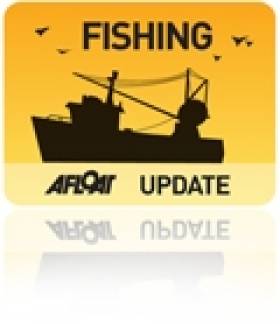Displaying items by tag: Grantaid
Grant Aid Announced for 129 Fisheries Projects
Grant-aid of €1,122,084 is being provided to support a total investment of €2,023,127 for safety upgrades on board fishing vessels, lobster conservation, the development of Environmental Management Systems for Ireland's fishing fleet, and a number of collectively based projects under the new Marine Environment Protection Scheme (MEPS).
"These projects will further support our fishing industry", said Minister Connick. "Based as they are on the principle of responsible fishing practices that result in premium quality Irish seafood, the environmental focus for many of these projects will be critical in sustaining Ireland's fisheries sector during this time of unprecedented economic challenge".
A range of marine environment, conservation and safety initiatives are approved. Jointly developed by the industry and Bord Iascaigh Mhara, the Seafood Environmental Management System (sEMS) and the Marine Environment Protection Scheme (MEPS), respond to the growing demand by seafood providers and consumers for access to responsibly sourced wild caught fish. Included is grant-aid of over €350,000 to assist Irish fishing vessels develop and implement Environmental Management Systems as well as undergoing third-party accreditation for the newly developed BIM Stewardship Standard. This internationally accredited (ISO65 – EN45011) standard is amongst the first of its kind worldwide. Ireland led the way with the introduction of the first such scheme for salmon in 2005 and since then has developed similar schemes for mussels and oysters.
BIM will also roll out the €419,000 Marine Environment Protection Measure, a programme aimed to maintain healthy fish stocks while simultaneously developing the marine environment. The national lobster conservation programme is also funded to the tune of €113,000 with a similar investment being made by inshore fishermen.
A full list of all the projects funded is provided below.
Sea Fisheries Development Programme
Fisheries Operational Programme – European Fisheries Fund
|
SCHEME |
Projects Approved |
Investment |
Total Grant Aid |
|
Marine Environment Protection Measure*
|
8 |
€477,366 |
€418,902 |
|
SEAFOOD ENVIRONMENTAL MANAGEMENT & CERTIFICATION GRANT AID SCHEME*
|
7 |
€740,117 |
€350,073 |
|
Shellfish Discard & Live Return Reduction scheme - Lobster conservation* |
42 |
€205,680 |
€113,124 |
|
FLEET SAFETY SCHEME
|
70 |
€483,936 |
€193,574 |
|
MARINE TOURISM SAFETY SCHEME
|
2 |
€116,029 |
€46,411 |
|
TOTAL |
129 |
€2,023,127 |
€1,122,084 |





























































